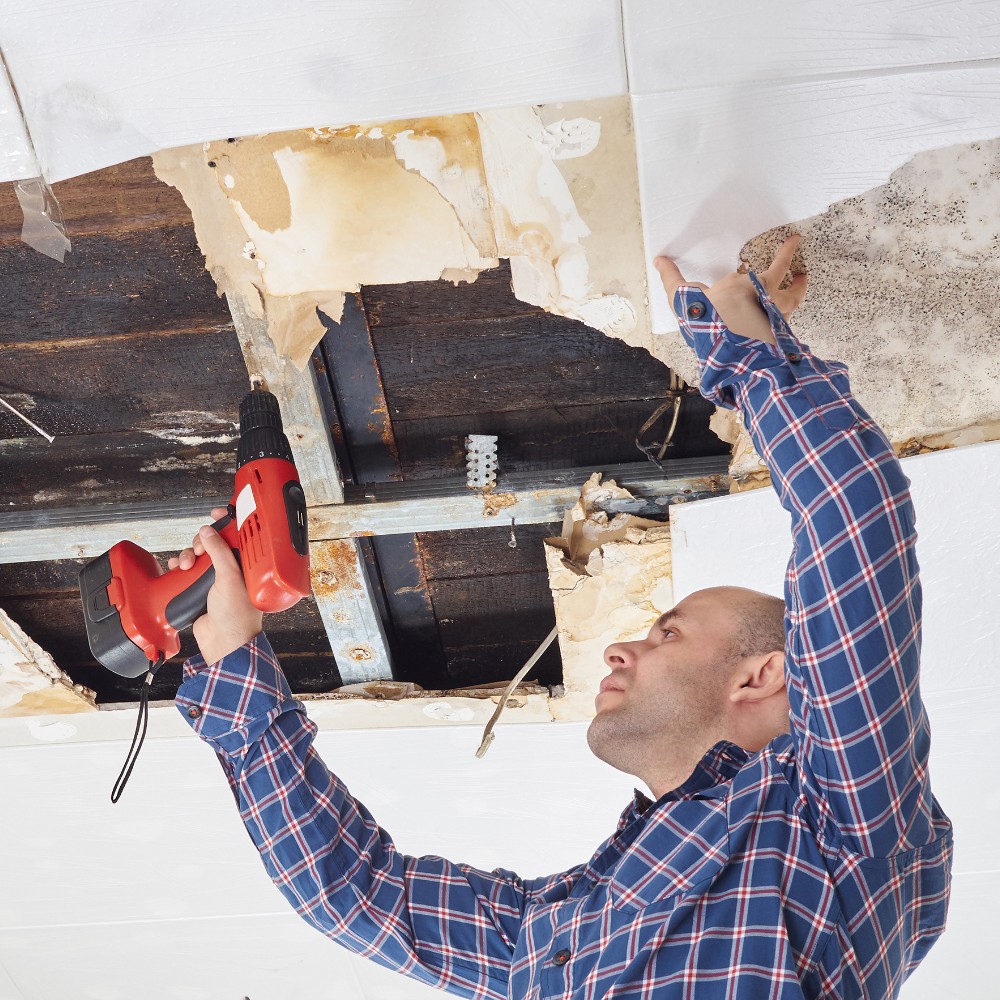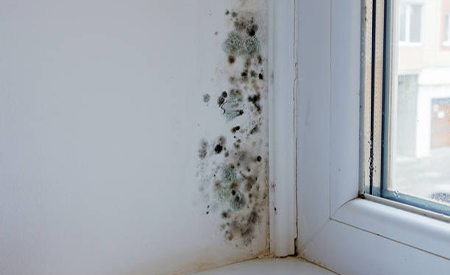The Process of Water Damage Cleaning: Ensuring Your Home Is Brought Back Effectively
Water damages can be a daunting obstacle for homeowners, requiring a organized and thorough cleanup process to bring back safety and functionality. damage restoration services. Following this, efficient water removal strategies play a critical duty in reducing additional damage.
Analyzing the Damage
Upon finding water damage, the primary step is to completely examine the level of the influence. This initial assessment is important, as it aids establish the necessary steps for effective clean-up and reconstruction. Begin by inspecting the affected areas, consisting of walls, ceilings, floors, and personal possessions, to determine the resource of the water intrusion, whether from flooding, leaks, or condensation.
Documenting the damages is essential for both insurance coverage cases and intending reconstruction initiatives - damage restoration services. Use photos and created notes to record the extent of the damages, noting any type of damaged architectural aspects and materials. Pay unique attention to areas that may not be promptly visible, such as behind walls and under rugs, as hidden wetness can bring about further issues, including mold development
In addition, examine the timeline of the water exposure. Eventually, a thorough analysis lays the groundwork for an effective water damages clean-up process, guaranteeing that all influenced areas are attended to effectively and thoroughly.
Water Removal Methods

Specialists typically utilize completely submersible pumps for bigger volumes of water, which can rapidly reduce flooding in cellars or other impacted areas. For smaller sized amounts, wet/dry vacuums are usually used to extract residual moisture from rugs and difficult surface areas. In addition, making use of portable extractors permits targeted removal in restricted areas or locations with fragile products.
In instances of infected water, such as sewer or floodwater, advanced extraction strategies may include using biohazard equipment to make sure security and conformity with health and wellness laws. High-powered removal devices are essential in lessening water retention in architectural products, which can cause mold growth and structural damage otherwise attended to immediately.
Inevitably, the performance of water removal strategies plays an essential function in the overall success of the water damage cleanup procedure, laying the foundation for succeeding repair efforts.
Drying and Dehumidification
When standing water has been effectively extracted, the following important phase in the water damages clean-up process is drying out and dehumidification. This step is important to avoid more damages and mold development, which can occur within 24 to 2 days in damp settings.
To accomplish efficient drying, customized devices such as industrial-grade air movers and dehumidifiers is used. Air movers circulate air throughout damp surfaces, improving evaporation rates, while dehumidifiers lower moisture degrees in the air, promoting a conducive environment for drying. The combination of these tools makes sure that wetness is extracted from furnishings, floorings, and walls, permitting them to dry extensively.
It is very important to keep track of the drying process very closely. Professionals often utilize look at here now moisture meters to examine the moisture material in numerous products, making certain that all impacted locations get to acceptable dry skin degrees. This precise strategy helps to avoid surprise moisture pockets that can result in architectural damages or harmful mold development.

Cleansing and Disinfecting
After the drying out and dehumidification stage is full, the next important action in water damage clean-up is cleaning up and sterilizing the influenced locations. This procedure is vital to protect against the development of mold and mildew, bacteria, and various other virus that thrive in damp environments.
The cleaning phase usually includes eliminating any particles, dust, and impurities from surface areas making use of specialized cleaning up representatives. For tough surfaces, a combination of soap and water or commercial cleansing items is commonly used. Soft products, such as upholstery and carpets, might call for more substantial cleaning methods, including vapor cleansing or deep removal strategies, to ensure thorough hygiene.

Disinfecting complies with cleaning, utilizing EPA-approved anti-bacterials to get rid of damaging microorganisms. This action is important, specifically in areas that might have entered into contact with floodwaters or sewer, as these sources can pose severe health threats.
Furthermore, it is very important to address any kind of remaining smells, which may need using smell neutralizers or advanced strategies like ozone treatment. Appropriate cleansing and sterilizing not only bring back the safety and hygiene of your home yet also prepared for effective remediation and fixings in subsequent stages of the water damages clean-up process.
Restoration and Repair Services

Once the analysis is complete, remediation efforts can begin. This usually includes repairing or replacing damaged materials, guaranteeing that all work abides by local building regulations and standards. If drywall has actually been endangered, it will require to be eliminated and replaced with new material. In addition, flooring might need similar attention, depending on the degree of water direct exposure.
It is vital to involve seasoned remediation professionals throughout this procedure, as they have the expertise to deal with intricate repairs effectively. They can help minimize potential future concerns, important link such as mold development or structural instability, hence making sure a safe and habitable living environment. Inevitably, efficient restoration and repair services restore the home's stability and boost its general value.
Final Thought
To conclude, the process of water damages cleanup is critical for recovering a home to its pre-damage condition. Each phase, from assessing the damages to applying efficient water removal techniques, adhered to by extensive drying out, sanitizing, and required repairs, plays a crucial role in making sure safety and security and compliance with building criteria. Effective execution of these actions not just mitigates immediate damages but likewise improves the lasting honesty and worth of the home.
Water damage can be a difficult difficulty for house owners, demanding a organized and thorough clean-up procedure to recover security and performance. Eventually, an extensive assessment lays the groundwork for a successful water damage cleaning procedure, making sure that all impacted areas are addressed efficiently and thoroughly.
Reliable water removal techniques are essential in reducing damages and avoiding further difficulties complying with a water invasion occasion.In verdict, the procedure of water damage cleaning is important for bring back a home to its pre-damage problem. Each phase, from analyzing the damages to implementing reliable water extraction strategies, complied with by complete drying, sanitizing, and needed repair work, plays an important duty in special info guaranteeing safety and conformity with building criteria.